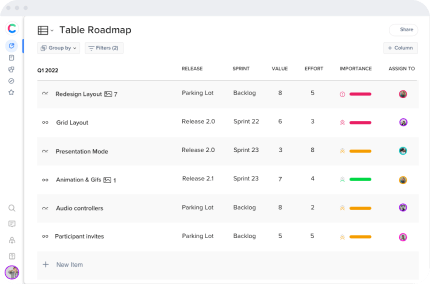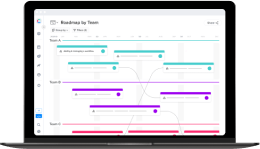What is opportunity cost?
Opportunity costs refer to the amount of potential gain that an individual, investor, or business loses out on when deciding on one activity or concept over another. Making choices is part of product management and business, whether you have options for a feature build, software upgrade, a marketing campaign, or a new company venture.
Any business choice comes with inherent losses, but you must make a choice that you feel will have better results. Therefore, understanding the potential missed opportunities, in terms of time or money, when a business or individual chooses to commit to one investment over another allows for better decision making.
Demonstrating The Concept Of Opportunity Cost
We suffer opportunity costs all day, sometimes without even noticing it. By choosing where to direct your billable hours, you have to deny yourself the opportunity to complete every assigned task. Additionally, you have to choose means that every option has its opportunities and benefits. So you must select the one that provides the maximum long-term value for your money and resources.
Consider, for instance, the choice between whether to go freelance or hold on to your 9 to 5 job. In this case, you might incur an opportunity cost in having a consistent paycheck, benefits packages, or even a company vehicle. However, you may still decide that the benefits of freelancing outweigh all these privileges and choose to freelance.
Investors can also be faced with a choice to sell their shares or hold on to them and sell later. While it’s true that they will secure the gains of selling immediately, they stand to lose out on any future profits the investment could bring.
When it comes to companies, managers might decide to put back profits into the business or use them on marketing and dividend payments. You can only use this money for one of those purposes. So following the companies’ decision, they have to accept to pass up on the benefits that come with other potential investment options.
Estimating Opportunity Costs
It is challenging for individuals and companies to fully quantify the opportunity cost at the time of decision making. Instead, they can only estimate the outcomes of every available alternative, meaning that failure to understand the results may lead to an opportunity cost that becomes significant in retrospect.
You can also identify opportunity costs by calculating the difference between the best-forgone option and the chosen one. While these costs are not reflected in financial reports, businesses and investors use them to make informed choices when selecting multiple options.
Opportunity Cost Vs. Sunk Cost
Opportunity cost is significantly different from sunk cost in that sunk cost refers to expenses that have already been paid for. In contrast, opportunity cost represents retrospective returns that are yet to be earned. Therefore, we can conclude that a sunk cost is backward-looking, while an opportunity cost is forward-looking.


